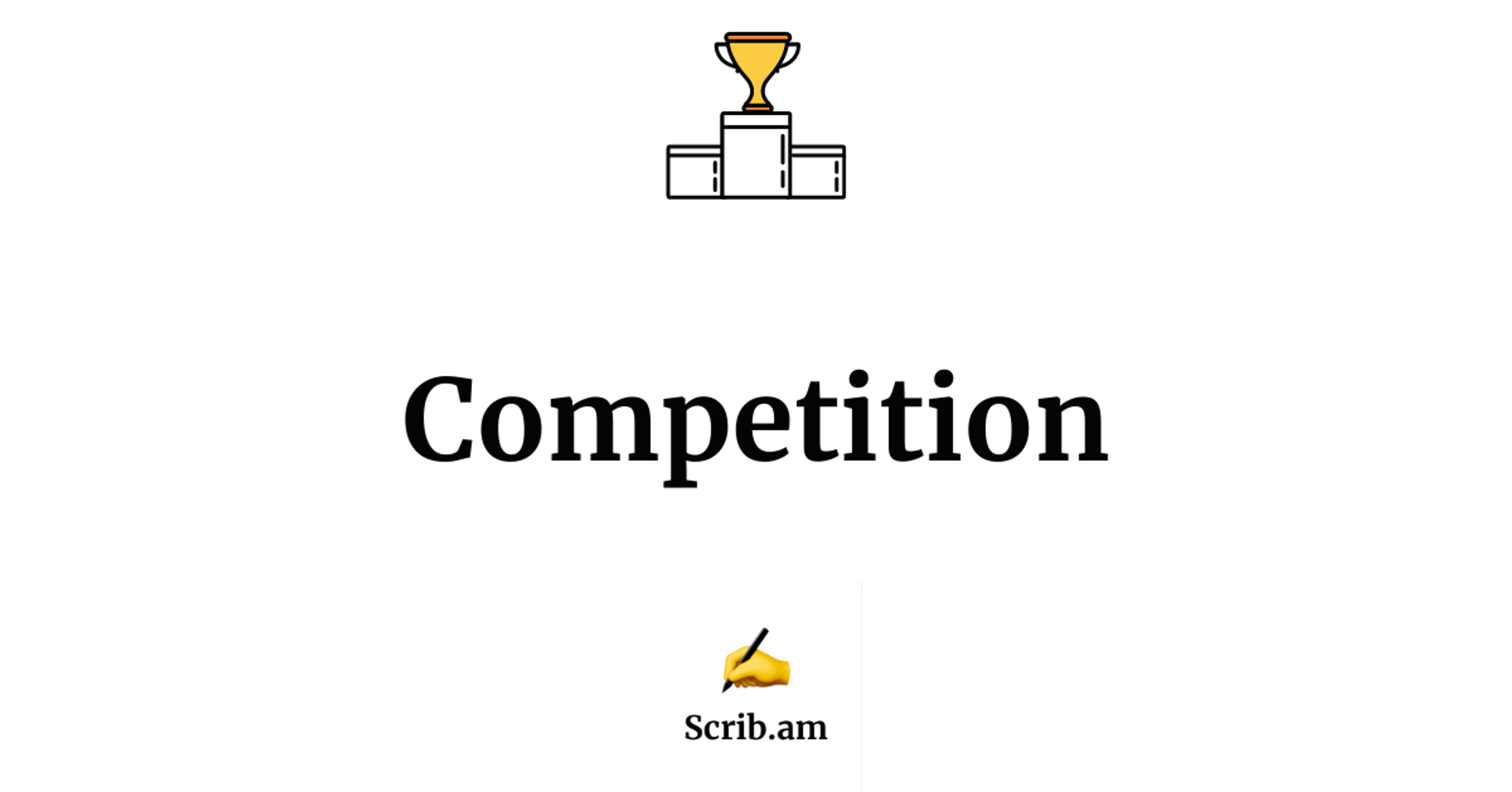Humans are inherently competitive.
We love games.
We’re keen to take part in all sorts of games and, even more so, to win them:
- exams
- sports
- dating
- job hunting
- business deals
- pure play, just for the love of it

A wide range of personal and professional activities have a strong competition component.
Billions are spent in training aimed at improving competitive skills.
Competitive Intelligence is a multibillion dollar industry.
Motivational apps and leaderboards are everywhere.
We need competition
Competition is the invisible oil that has been greasing the wheels of Progress since the dawn of civilization.
Here are just a few examples:
- Competition is the driving force of efficient markets, so much that if you search for “competition” on Google (here in the UK), the first organic result is the website of the Competition and Markets Authority, in charge of promoting competition for the benefit of consumers, both within and outside the UK.
- Competition is also a core component of democracy. It tends to distribute power among (a handful of) political parties.
- In our personal relationships, competition for the right partners is a key feature of the mating game. At a more microscopic level, millions of sperm cells compete to fertilize a single ovum.
- Bitcoin’s monetary supply isn’t controlled by any central authority: it is based on constant competition between mining computers fighting to solve a math problem to validate a transaction, which rewards them with a new BTC (within the limits set by the protocol).
Why do we love competition?
We’re genetically programmed to perpetuate our species (even if we must admit that our sometimes erratic behaviour might cast doubt on that claim).
Competition is part of the selection process which theoretically maximizes our chance for survival.
Excessive competition though can also jeopardize the whole evolution enterprise.
It could push us to the brink of extinction.
The dark side of competition
Competitions are by essence a zero-sum game: for someone to win, someone else has to lose.
It’s easy to see the natural motivation for the exercise: who wants to lose?
Conversely though, an excessive desire to win, especially when fueled by rewards such as money, power or fame, can lead to excessive and deviant behaviours: deceit, treachery, even violence. Simulated in board and video games, War is the ultimate form of ruthless competition, a brutal quest for domination on people and resources.

Competition in politics also comes with its fair share of perversions. Candidates deploy all sorts of persuasion tactics to win the votes of their constituents: granting backdoor privileges, offering gifts, invitations, free food and drinks. The official program is only a small component of the electoral strategy. Its promises are usually short-lived, mainly aimed at a very specific objective: winning on election day.
Indeed, a critical downside of competition is that it’s by definition an “extrinsic incentive” (as opposed to a deeper personal motivation). Competitors fight for a reward but the excitement quickly wanes when the incentive disappears. That’s why competitions promoting good causes (such as “saving energy to win cash”) don’t usually turn into sustainable habits.
Take away the carrot and the donkey stops moving.
Moreover, typical incentives for competitive performance aren’t as effective as they may seem.
In the workplace, for instance:
If we want an engaged workforce, money is clearly not the answer. In fact, if we want employees to be happy with their pay, money is not the answer. In a nutshell: money does not buy engagement.
Source: Harvard Business Review
It gets even worse:
Lots of psychological research has also shown that external incentives “crowd out” (i.e., undermine) people’s intrinsic motivation to do good. For example, highlighting the monetary benefits of saving energy actually makes people less likely to do so.
Source: Psychology Today.
Empathy-driven initiatives seem to have more durable effects.
Long-standing research has shown that the ability to be compassionate, empathize with others and to care about the natural world are evolutionarily adaptive behavioral traits. In fact, a psychological concept known as the “helper’s high” suggests that “doing good” actually makes people “feel good” both psychologically as well as physically (helping behavior often releases “feel-good” neurotransmitters such as oxytocin, a process which economists refer to as “warm-glow”).
Source: Psychology Today.
Cooperation is the antidote to excessive competition.
Cooperation is a balance where egoism and altruism are both satisfied without excluding one another and for every participant, avoiding internal and external conflicts (competition).
Beyond the short-lived euphoria of one-off zero-sum games, cooperative win-win outcomes are the best way to spin he flywheel of virtuous circles.
You might like the following article: Moloch.

